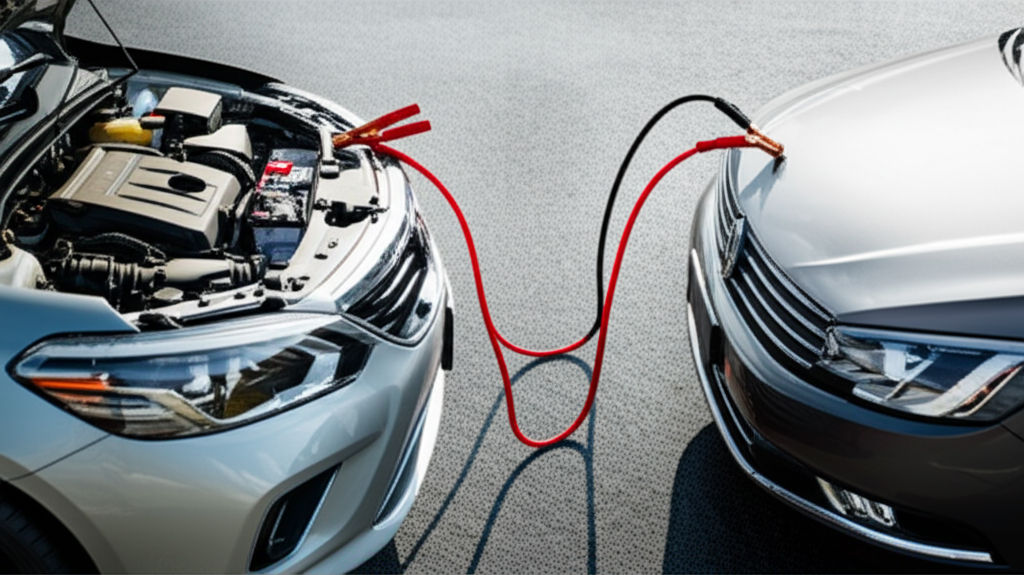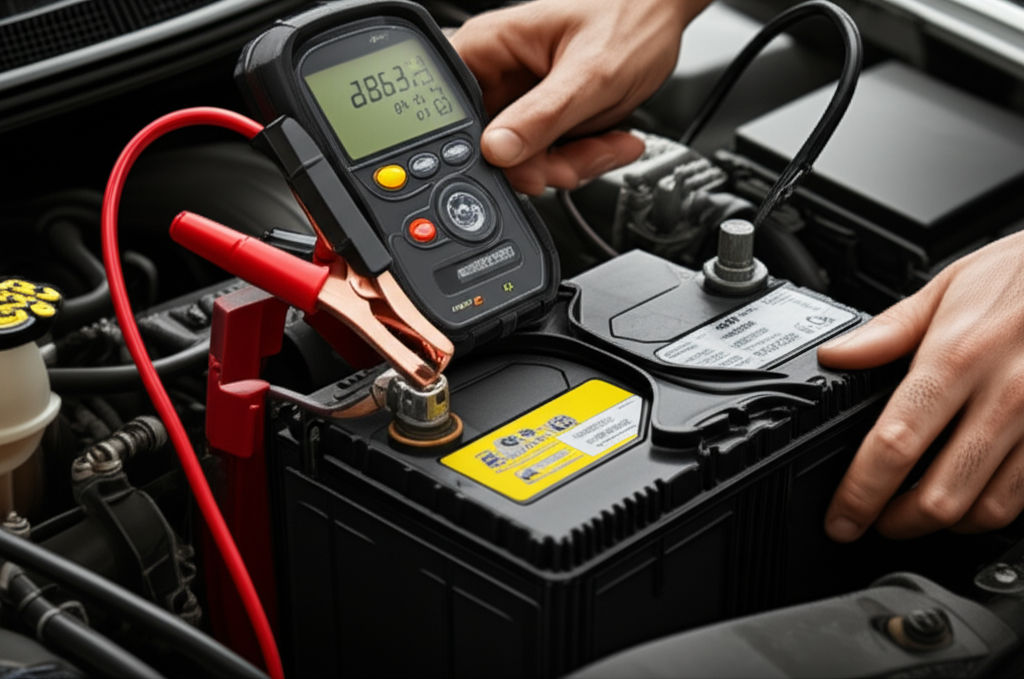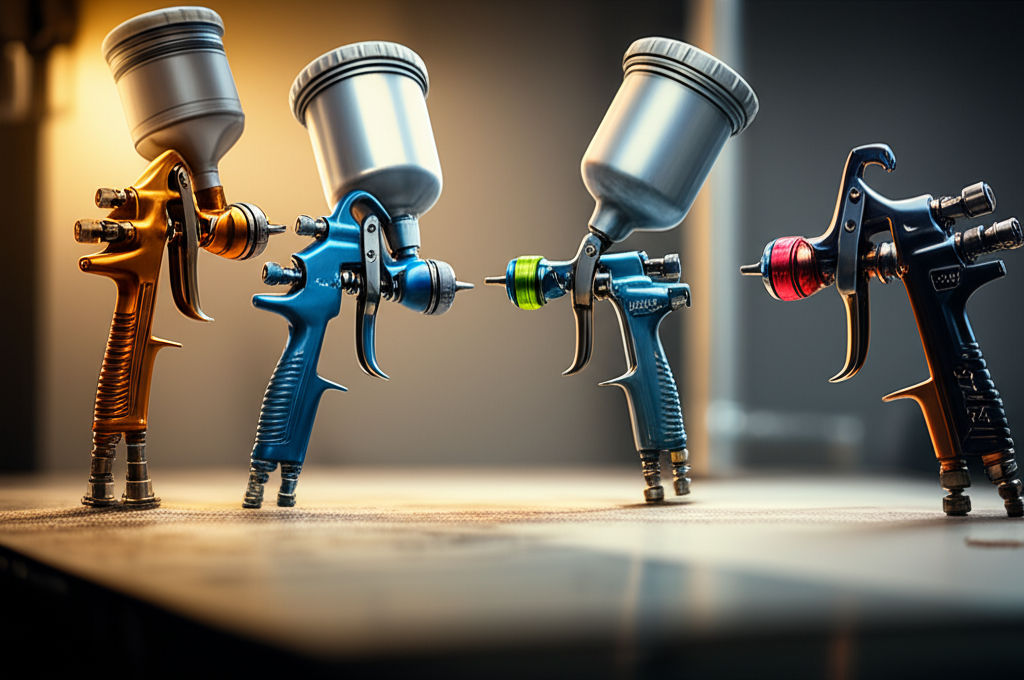How To Use Jumper Cables For Automotive Emergencies
Ellie Moore

Photo: Don't get stranded! Learn to safely jump start your car with our comprehensive guide. Master jumper cables and tackle dead batteries with confidence.
A dead car battery can strike at the most inconvenient times, leaving you stranded and frustrated. Whether it's a cold morning before work or late at night after a long day, a car that won't start is a common automotive emergency. While it might seem daunting, knowing how to use jumper cables is a fundamental skill that can quickly get you back on the road and transform a stressful situation into a manageable one.
This comprehensive guide will walk you through the process of jump starting a car safely and effectively. We'll cover everything from understanding your equipment and crucial safety precautions to a detailed, step-by-step procedure and troubleshooting common issues. By the end, you'll feel confident in tackling this common automotive emergency with expertise and trust.
Understanding Your Battery and Jumper Cables
Before you begin, it's helpful to have a basic understanding of the components involved in a jump start.
Your car's battery is essentially a rechargeable power pack that provides the initial surge of electricity needed to start the engine and powers your vehicle's electrical systems when the engine is off. When it dies, it simply can't deliver enough current to get things going.
Jumper cables are insulated wires with clamps on each end, designed to transfer electrical current from a working battery to a dead one. They come in pairs: one red (positive) and one black (negative).
Choosing the Right Jumper Cables
Not all jumper cables are created equal. Investing in a quality set can make a significant difference in an emergency. Here's what to look for:
- Gauge (Thickness): The lower the gauge number, the thicker the wire, and the more power it can safely transmit. For most standard vehicles, 4- or 6-gauge cables are recommended. Thinner cables (like 10-gauge) might work for small cars with weak batteries but often aren't powerful enough for a completely dead battery or larger vehicles.
- Length: Longer cables (16-20 feet) offer more flexibility, especially if the "donor" car can't park directly beside the disabled vehicle. Aim for at least 10-15 feet for most situations.
- Clamps: Look for heavy-duty clamps made of solid copper or copper-plated material with strong teeth for a secure connection. Well-insulated handles are also important for safety.
Safety First: Essential Precautions Before You Begin
Safety is paramount when jump starting a car. You're dealing with electricity and potentially explosive hydrogen gas released by batteries, so caution is key. Ignoring safety steps can lead to serious injury or damage to one or both vehicles.
Always prioritize these precautions:
- Wear Protective Gear: Eye protection (goggles or safety glasses) and gloves are highly recommended to shield against sparks, battery acid, or debris.
- Inspect the Battery: Before connecting anything, visually inspect the dead battery. Do NOT attempt to jump start if the battery is cracked, leaking, swollen, or appears frozen. These are signs of severe damage, and attempting a jump could cause it to rupture or explode. In such cases, professional help is required.
- Position Vehicles Safely: Park the working vehicle close enough so the jumper cables can easily reach both batteries, but ensure the vehicles are not touching. This prevents accidental electrical shorts.
- Turn Off Both Vehicles: Ensure both cars' ignitions are off, and set their parking brakes. For automatic transmissions, put them in "Park," and for manual transmissions, put them in "Neutral".
- Disable Electronics: Turn off all electrical accessories in both vehicles, including headlights, interior lights, radio, air conditioning, and unplug any chargers [6, 1
Finance & Investment
View All
February 4, 2025
Online Auto Financing EvaluationMaster expert SEO content with E-E-A-T to rank higher, build authority, and drive traffic. Learn why quality, experience, and trust are key for Google.
Ellie Moore

May 19, 2025
FTL Finance Explained for BeginnersUnlock organic growth with expert SEO content. Discover how high-quality, E-E-A-T-driven content boosts rankings, builds trust, and drives conversions.
Ellie Moore

November 10, 2025
Los Angeles Office of Finance InfoMaster expert SEO content for higher rankings & engaged readers. Craft authoritative, valuable content aligned with Google's E-E-A-T framework.
Ellie Moore

March 24, 2025
REITs 101: Invest in Real Estate Without BuyingDiscover how REITs let you invest in real estate without the hassle of owning property. A beginner’s guide to building wealth with real estate today!
Ellie Moore

October 15, 2025
Yahoo Finance Guide to Smarter InvestingUnlock top rankings with expert SEO content! Go beyond keywords to craft valuable, authoritative resources that satisfy users and search engines.
Ellie Moore

November 18, 2025
Katapult Financing Buy Now Pay LaterElevate your brand with expert SEO content. Discover the blueprint for online authority, improved rankings, and trusted content that truly engages your audience...
Ellie Moore
Insurance
View AllFind out why marine insurance is vital for protecting cargo, vessels, and shipping operations in international trade.
Ellie Moore
Secure your future with Complete Progressive Insurance Protection. Get unrivaled coverage, optimize rates, and achieve peace of mind against risks.
Ellie Moore
Discover how peer-to-peer insurance models operate, offering community-based risk-sharing alternatives.
Ellie Moore
Separate fact from fiction! Uncover the truth about life insurance myths and make informed decisions for your future.
Ellie Moore
Learn how critical illness insurance offers financial protection during health crises. Get covered and stay secure!
Ellie Moore
Maximize your car accident claim! Discover why top-rated lawyers are essential for navigating complex insurance, securing optimal compensation & justice.
Ellie Moore
Education
View AllMicro-credentials are on the rise! Discover how they provide fast, focused skills for today’s learners and reshape education.
Read MoreDiscover how AI-powered personalized learning is reshaping education. Learn how smart tech tailors content to fit individual student needs.
Read MoreUnderstanding memory is key to better teaching. Learn how memory functions and how to use this knowledge to enhance teaching techniques.
Read MoreEthics in education is vital for balanced learning. Learn how to teach morality alongside knowledge transfer in today’s classrooms.
Read MoreLifelong learning is the new normal! Discover why continuous learning is essential for personal growth, career success, and adapting to change.
Read MoreThe digital divide limits education access. Explore strategies and initiatives to bridge this gap and ensure global learning equality.
Read MorePopular Post 🔥
View All
1
2
3
4
5
6
7
8
9
10
Health






Automotive
View All
August 26, 2025
Oriole Automotive A Local Name You Can Trust
Oriole Automotive: Quincy's trusted local auto repair experts. Get personalized service, quality care, and community-focused solutions.

September 1, 2025
How To Use An Automotive Battery Tester
Unlock your car's power! Learn to use an automotive battery tester to diagnose battery health, prevent breakdowns, and save money.

February 3, 2025
Car Mods: Finding the Perfect Customization Balance
Explore how to balance car customization and performance. Learn tips for modifications that enhance style without compromising safety.

July 14, 2025
What Makes True Automotive Stand Out In The Market
What defines True Automotive excellence? It's customer trust, transparency, and expert service. Learn to spot leaders who prioritize you.

February 3, 2025
Car Maintenance Basics: Oil Changes & More
New to car maintenance? This beginner’s guide covers oil changes, filter replacements, and essential care tips to keep your car running smoothly.

September 3, 2025
Which Automotive Paint Gun Works Best For You
Unlock flawless car paint jobs! This guide helps you choose the best automotive paint gun for stunning results, efficiency, and control. Perfect for DIYers & pr...

















